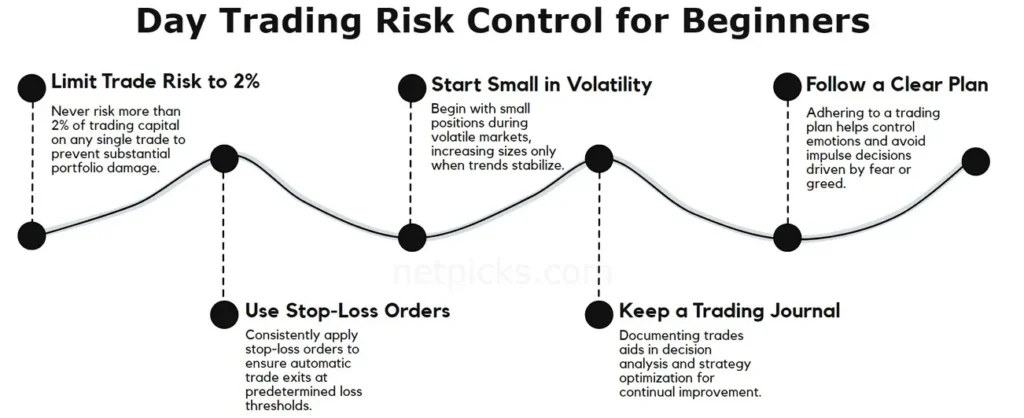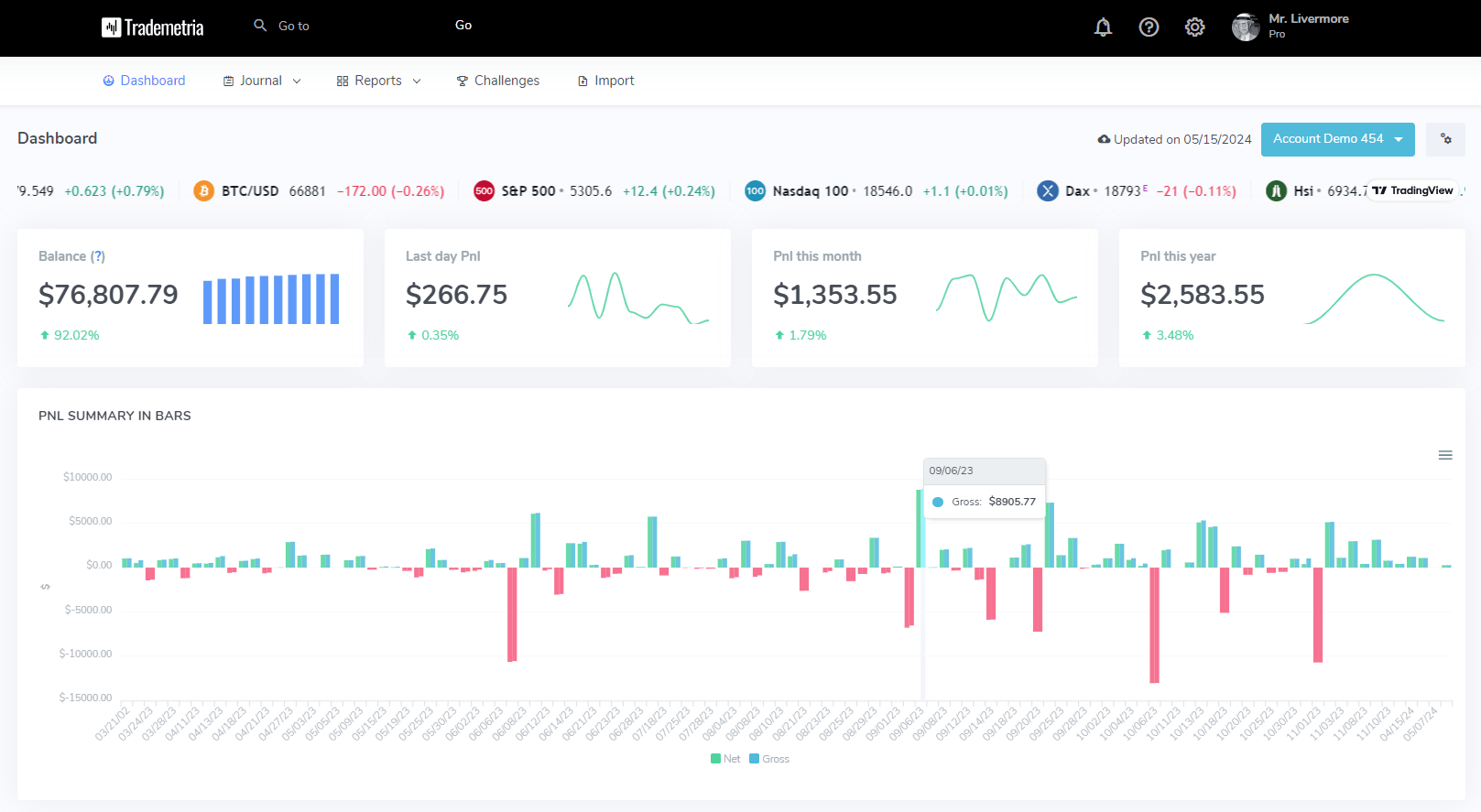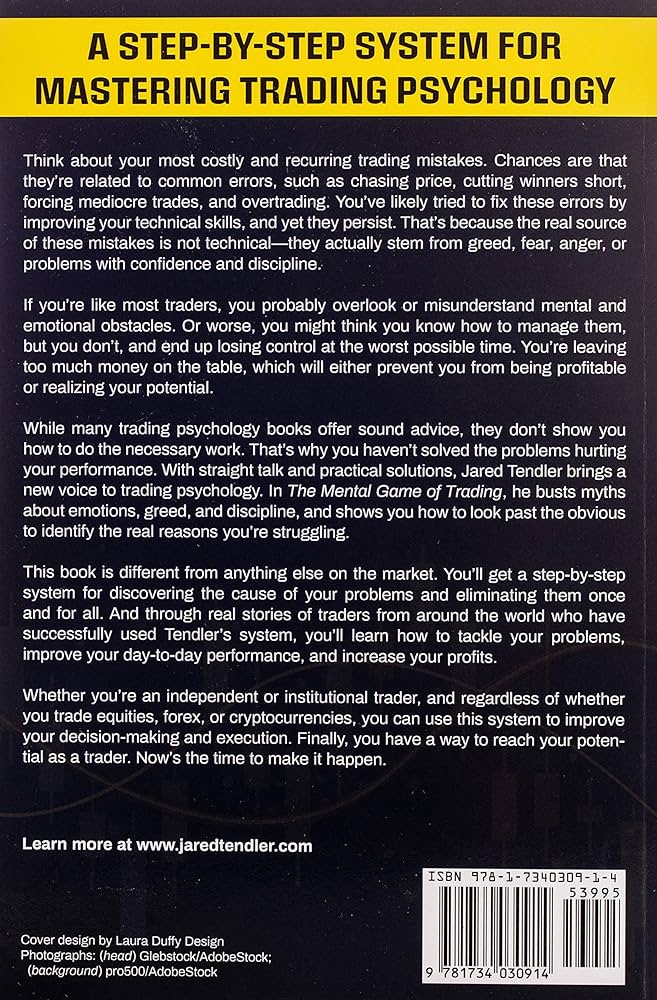Did you know that even the most disciplined day traders sometimes forget where they parked their car? Just like parking, maintaining discipline in day trading requires a solid strategy. In this article, we’ll explore the essential principles of day trading discipline, from developing a consistent routine to mastering mental strategies that keep your focus sharp. We’ll highlight the importance of risk management, tools that can help you stay on track, and techniques for handling losses gracefully. Additionally, discover how journaling can elevate your trading performance and the common pitfalls to avoid. With insights from DayTradingBusiness, you'll learn how to craft a trading plan that fosters discipline and ultimately leads to success in the fast-paced world of day trading.
What are the key principles of day trading discipline?
The key principles of day trading discipline include:
1. Set Clear Goals: Define specific profit targets and loss limits before trading.
2. Stick to a Plan: Develop a trading strategy and follow it consistently.
3. Manage Risk: Use stop-loss orders to protect your capital and limit losses.
4. Stay Emotionally Detached: Avoid trading based on emotions; stick to your rules.
5. Keep a Trading Journal: Document trades to analyze performance and refine strategies.
6. Limit Screen Time: Avoid overtrading by setting specific hours for trading.
7. Continuous Learning: Stay informed about market trends and improve your skills regularly.
How can I develop a day trading routine?
To develop a day trading routine, start by defining your trading hours. Choose a consistent time frame each day when you’ll focus on the markets. Next, create a pre-market checklist that includes reviewing news, analyzing charts, and setting your trading goals. Stick to a specific trading strategy and set clear entry and exit points for each trade.
Incorporate regular breaks to maintain focus and avoid burnout. After trading, analyze your performance by reviewing trades to identify what worked and what didn’t. Adjust your strategy based on these insights. Lastly, stay disciplined; avoid emotional trading and stick to your plan. Consistency in these practices will enhance your trading discipline and improve your results.
What mental strategies improve day trading discipline?
1. Set clear goals: Define daily profit targets and loss limits to maintain focus.
2. Develop a trading plan: entry and exit strategies to avoid impulsive decisions.
3. Use a journal: Track trades and emotions to identify patterns and improve decision-making.
4. Practice mindfulness: Stay present to reduce emotional reactions to market fluctuations.
5. Implement routine: Establish a consistent daily schedule to reinforce discipline.
6. Limit distractions: Create a dedicated trading environment to enhance concentration.
7. Review and adapt: Regularly assess performance and adjust strategies as needed to stay disciplined.
How important is risk management in day trading?
Risk management is crucial in day trading. It protects your capital and helps you manage losses. Set stop-loss orders to limit potential losses on each trade. Determine your risk-reward ratio before entering a position. Never risk more than 1-2% of your trading capital on a single trade. Effective risk management increases your chances of long-term success and discipline in your trading strategy.
What tools can help maintain discipline in day trading?
1. Trading Journals: Use a trading journal to track your trades, emotions, and decisions. It helps identify patterns and areas for improvement.
2. Risk Management Tools: Set stop-loss orders to limit potential losses and protect your capital.
3. Alerts and Notifications: Utilize trading platforms that offer alerts for price movements or news events to stay informed without constant monitoring.
4. Trading Plans: Develop a clear trading plan with entry and exit strategies. Stick to it to avoid emotional trading.
5. Time Management Apps: Use timers to allocate specific periods for trading and breaks, helping to maintain focus and discipline.
6. Simulation Software: Practice with trading simulators to refine your strategies without risking real money.
7. Accountability Partners: Find a trading buddy or mentor to share experiences and hold each other accountable.
Implementing these tools can significantly enhance your discipline in day trading.
How do successful day traders stay disciplined?
Successful day traders stay disciplined by following these best practices:
1. Set Clear Goals: Define specific, measurable trading objectives.
2. Create a Trading Plan: Develop a detailed plan that outlines entry and exit strategies, risk management, and position sizing.
3. Stick to the Plan: Only trade according to your established plan. Avoid emotional decisions.
4. Limit Losses: Use stop-loss orders to protect against significant losses and maintain a risk-reward ratio.
5. Maintain a Trading Journal: Record trades, strategies, and outcomes to analyze performance and learn from mistakes.
6. Practice Patience: Wait for the right opportunities rather than forcing trades.
7. Control Emotions: Stay calm during volatility; mindfulness techniques can help manage stress.
8. Regularly Review Performance: Assess trades to identify strengths and weaknesses, adjusting strategies as needed.
By consistently applying these practices, day traders can maintain discipline and improve their trading outcomes.
What role does emotional control play in day trading?
Emotional control is crucial in day trading because it helps traders make rational decisions under pressure. It prevents impulsive trading based on fear or greed, which can lead to significant losses. Maintaining emotional discipline allows traders to stick to their strategies, manage risks effectively, and avoid overtrading. By controlling emotions, traders can better analyze market conditions, make informed choices, and maximize profits while minimizing losses.
How can I avoid impulsive decisions while day trading?

To avoid impulsive decisions while day trading, establish a clear trading plan with defined entry and exit points. Stick to your strategy and avoid emotional trading based on market noise. Use stop-loss orders to limit potential losses and take breaks to clear your mind. Keep a trading journal to reflect on your decisions and learn from mistakes. Finally, set realistic goals and maintain a disciplined mindset to stay focused on your long-term success.
What are the best practices for setting trading goals?
1. Define Clear Objectives: Specify what you want to achieve, like a percentage return or a specific dollar amount.
2. Set Realistic Targets: Base goals on your trading experience and market conditions. Avoid unrealistic expectations.
3. Use SMART Criteria: Ensure goals are Specific, Measurable, Achievable, Relevant, and Time-bound.
4. Focus on Process, Not Just Profits: Emphasize improving your trading strategy and discipline over chasing profits.
5. Create a Trading Plan: your strategies, risk management rules, and how you’ll measure success.
6. Track Progress Regularly: Review your performance frequently to see if you’re on track and adjust as needed.
7. Stay Flexible: Be ready to adapt your goals based on market changes or personal growth in trading skills.
8. Limit Risk Exposure: Set goals around risk management to protect your capital while pursuing profits.
How can journaling enhance my day trading discipline?

Journaling can significantly enhance your day trading discipline by helping you track your trades, analyze your decision-making, and reflect on your emotional responses. By recording entry and exit points, you gain insights into what strategies work best for you. Analyzing past trades allows you to identify patterns and mistakes, leading to better future decisions. Reflecting on your emotions during trades helps you manage stress and avoid impulsive actions. Setting specific goals in your journal keeps you accountable and focused. Ultimately, consistent journaling builds a disciplined trading mindset that improves your overall performance.
What techniques help in maintaining focus during trading hours?
To maintain focus during trading hours, try these techniques:
1. Set Clear Goals: Define daily profit and loss limits to stay on track.
2. Create a Routine: Establish a pre-market and trading routine to build consistency.
3. Limit Distractions: Turn off notifications and minimize interruptions in your trading environment.
4. Take Breaks: Schedule short breaks to refresh your mind and avoid burnout.
5. Use a Trading Journal: Record trades and thoughts to reflect and improve your decision-making.
6. Practice Mindfulness: Incorporate breathing exercises or meditation to enhance concentration.
7. Stay Physically Active: Incorporate light exercise to boost energy and focus.
Implementing these practices can significantly enhance your discipline and focus during trading hours.
How can I handle losses without losing discipline?
To handle losses in day trading without losing discipline, stick to your trading plan. Set clear risk limits for each trade and adhere to them. After a loss, analyze what went wrong without dwelling on it; this helps improve future decisions. Take breaks to clear your mind and avoid emotional trading. Maintain a consistent routine and journal your trades to track progress and identify patterns. Focus on your long-term goals rather than individual losses to keep your mindset strong.
What timeframes are best for disciplined day trading?
The best timeframes for disciplined day trading are typically 1-minute, 5-minute, and 15-minute charts. These shorter timeframes provide quick insights into price movements and allow for rapid decision-making. Many traders prefer the 5-minute chart for a balance between noise and detail, while the 15-minute chart can help identify broader trends. Always match your strategy and risk management to the timeframe you choose.
How does market analysis contribute to discipline in trading?
Market analysis enhances discipline in trading by providing data-driven insights that guide decision-making. It helps traders set clear entry and exit points based on trends, reducing emotional trading. By understanding market conditions, traders can stick to their strategies, avoid impulsive moves, and maintain a consistent approach. This structured analysis fosters patience and adherence to trading plans, which are crucial for long-term success.
What are common mistakes that hinder day trading discipline?

Common mistakes that hinder day trading discipline include:
1. Overtrading: Taking too many positions can lead to emotional exhaustion and poor decision-making.
2. Ignoring a trading plan: Deviating from a pre-established strategy often results in impulsive trades.
3. Lack of risk management: Not setting stop-loss orders can lead to significant losses.
4. Emotional trading: Allowing fear or greed to influence decisions disrupts discipline.
5. Chasing losses: Trying to recover lost capital quickly can lead to reckless behavior.
6. Neglecting market analysis: Skipping research leads to uninformed trades.
7. Inconsistent routines: Irregular trading schedules can diminish focus and discipline.
Focusing on these areas can enhance day trading discipline and improve overall performance.
Learn about Common Mistakes in Day Trading Momentum Strategies
## What are the Best Practices for Maintaining Discipline in Day Trading?
Day trading is the practice of buying and selling financial instruments within the same trading day, aiming to profit from short-term price fluctuations. Best practices for day trading discipline include setting clear goals, using stop-loss orders, maintaining a trading journal, avoiding emotional trading, and sticking to a well-defined strategy.
Learn more about: What is Day Trading?
How can I create a trading plan that promotes discipline?
To create a trading plan that promotes discipline, start by defining clear goals. Specify your desired profit targets and risk tolerance. Establish strict entry and exit rules based on your strategy, and use stop-loss orders to manage risk. Keep a trading journal to track your trades and emotions, helping you learn from mistakes. Schedule regular reviews of your performance to identify patterns and areas for improvement. Lastly, commit to following your plan without deviation, treating your trading like a business.
Learn about How to Create a Day Trading Options Plan
Conclusion about Best Practices for Day Trading Discipline
In conclusion, maintaining discipline in day trading is crucial for long-term success. By adhering to key principles, developing a structured routine, and employing effective mental strategies, traders can enhance their focus and emotional control. Risk management and the use of appropriate tools are essential in avoiding impulsive decisions and managing losses. Successful day traders prioritize goal-setting and journaling to track progress and refine their approach. For those looking to elevate their trading discipline, integrating these best practices is vital. Remember, DayTradingBusiness is here to support you in mastering the art of disciplined trading.
Learn about Best Practices for Day Trading Altcoins
Sources:
- Professional trader discipline and trade disposition - ScienceDirect
- New Zealand: Financial System Stability Assessment, including ...
- The Future of Sensitivity Analysis: An essential discipline for systems ...
- How I Generate Investment Ideas | CFA Institute Enterprising Investor
- Can Day Trading Really Be Profitable?
- Skills That Separate You as an Investment Manager: Introspection ...